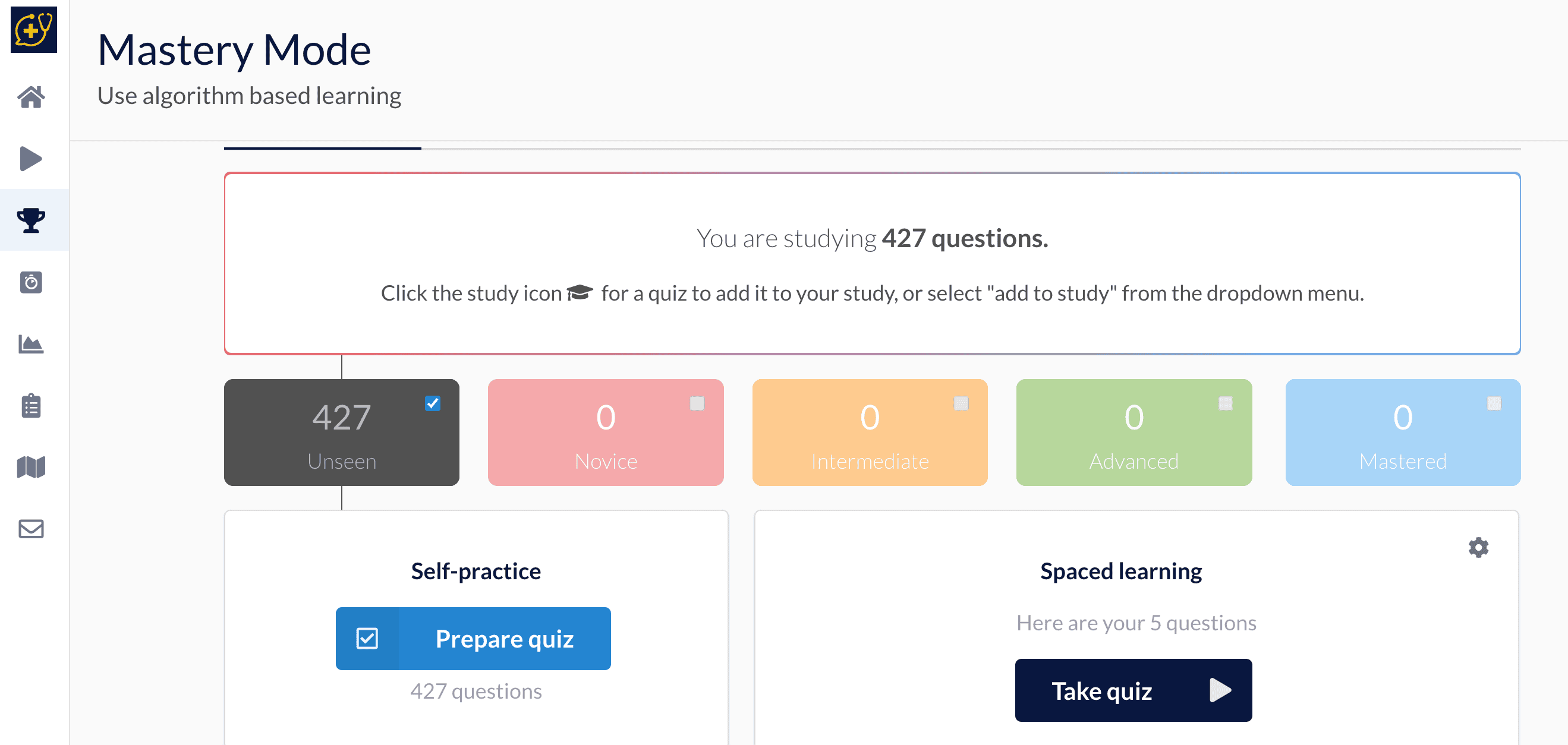FRACP Revision Methods: Smarter Study Strategies That Actually Work
Preparing for the FRACP Written Examination can feel like standing at the base of a mountain — steep, intimidating, and full of unknowns. But the way you revise matters just as much as how much time you put in. Below are evidence-based FRACP revision methods, with a focus on quality over quantity — fewer questions per day, but much deeper reflection.
1. Active Recall with Reflection
It’s tempting to speed through 100 questions a day and feel like you’re making progress. But research shows slower, more reflective active recall leads to better retention.
- How to apply it: Instead of rushing, do 10–15 FRACP questions in a sitting. After each one, pause and ask yourself: Why did I choose that answer? What made the other options wrong? How would I explain this to a junior colleague?
- Example: In PassFRACP’s Mastery Mode, you revisit the same question until you’ve mastered it. Reflecting on the explanation — not just ticking off the correct answer — is what makes the learning stick.
“I cut down from 80 questions a night to 15 in Mastery Mode, but I took time to write out explanations. My retention actually shot up.” – Hamish, Christchurch trainee
2. Spaced Repetition with Smaller Sets
Spaced repetition still works best when you’re not flooding yourself with volume.
- How to apply it: Instead of cramming all of cardiology in one go, pick 5–10 questions, reflect deeply, and revisit them a few days later.
- Benefit: This allows your brain to build a solid memory scaffold, instead of fragile, rushed recall.
“I started using spaced repetition with Mastery Mode, and it stopped me from overstudying what I already knew. Suddenly I had more time for the scary topics — like stats!” – Ajay, Auckland trainee
3. Interleaving: Mix, Don’t Block
It’s tempting to study cardiology for two weeks straight and then move to respiratory. But research shows interleaving (mixing subjects) actually strengthens retention and exam adaptability.
- How to apply it: In one session, do 10 cardiology questions, 5 renal, and finish with some statistics.
- Example: Mastery Mode promotes interleaving by pulling random questions across the syllabus, simulating the unpredictable mix on exam day.
4. Teaching Others: Learn by Explaining
If you can explain it, you understand it. Teaching forces you to simplify and clarify your knowledge.
- How to apply it: Form a study group and rotate “mini-teach” sessions where each person explains a guideline update or common exam theme.
- No group? Record yourself explaining and play it back on your commute.
5. Simulation — But Less Is More
Full-length mocks are crucial, but don’t overdo them early. Reflection is more powerful at the beginning.
- How to apply it: Do shorter, focused blocks with deep review. As the exam gets closer, then move into timed mocks to test stamina.
- Example: PassFRACP’s exam simulations let you toggle between practice mode and timed mode. Start reflective, then transition to mocks as exam day approaches.
“The timed mocks on PassFRACP were brutal the first time. But by the third, my pacing improved so much that the real exam felt manageable.” – James, Wellington trainee
6. The Pomodoro Technique for FRACP Study
Studying for hours without a break sounds productive, but your brain only has so much stamina. The Pomodoro technique helps keep energy and concentration high.
- How to apply it: Set a timer for 25 minutes of focused work (e.g. Mastery Mode or guideline review), then take a 5-minute break. After 4 cycles, take a longer 20–30 minute break.
- Example: Use Pomodoro blocks for high-yield topics like cardiology pharmacology or respiratory physiology.
“Pomodoro sessions changed my whole routine. I’d smash through two 25-minute blocks of FRACP questions before work, and it added up to hundreds of extra questions in the months before the exam.” – Mei, Sydney trainee
Final Thoughts
For FRACP revision, more isn’t always better. Slowing down, doing fewer questions per day, and engaging in deliberate reflection can actually accelerate your long-term retention. With tools like PassFRACP’s Mastery Mode, Pomodoro cycles, and structured reflection, you’ll build depth, not just breadth — and that’s what carries you through exam day.
Remember: consistency beats perfection. A focused 45-minute Mastery Mode session with Pomodoro breaks is worth far more than a distracted 3-hour reread.
